
Today Building has released episode 3 of its Building Talks podcast, dedicating four episodes to interviews with leading names in urban design about their approaches to community-building.
New developments can face massive local opposition, attacked for poor design, a lack of public services and low quality civic space.
These are some of the challenges we will be tackling in this series by talking to professionals about their projects, influences and motivations.
Our guest in today’s episode is David Rudlin.
David is one of the UK’s leading urban designers and planning experts. He began his career as a town planner at a time when that role still involved a degree of design responsibility, rather than the increasingly development-management focus it has come to be associated with in recent decades. And the idea of the planner as someone who helps provide a clear strategic direction, and sets high standards for placemaking, is one that David still strongly believes in.
I’ve always said I love modern buildings, but modernist town planning is a disaster
Growing up in Birmingham in the 1970s, David was at first excited and then increasingly disillusioned with the modernist town planning that he saw being implemented around him.
“I’ve always said I love modern buildings, but modernist town planning is a disaster,” says David in the podcast. “I also think modernism has a bigger problem in that it doesn’t wear well, whereas traditional places actually get better as they get older - all the incremental change adds to their character. I think modernism looks best on the first days its opened and then deteriorates thereafter.”
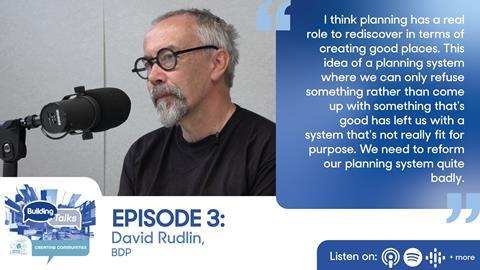
David’s interest in the built environment and his belief that there was a better way to do urbanism, led him to study planning in Manchester, a city with which he has had a close relationship ever since. Like many good architects and urban designers, attachment to a specific location has been critical to his professional outlook. David has been in Manchester throughout its rebirth and emergence as a leading European city and has played a leading role in some of its key developments, including the regeneration of Hume.
When asked for an example of a place that has got the creating communities and placemaking agenda right, David points to Manchester, referencing the learning curve the city has been on from the earliest days of its bid to win the Olympics, to its emergence as a thriving hub that is drawing in talent and investment from across the UK and further afield.
“Manchester is a great case study I think. There’s a story about the process in Manchester which begins when they were bidding for the Olympic games”, he says of the city.
“And when the senior people went to Barcelona as part of that process they realised that Manchester was just awful compared to Barcelona, and that it wasn’t just the cathedrals and concert halls, it was just the basic quality of urban realm in the city.”
He believes the country still has a long way to go to embed good basic standards of urban design
The belief that British cities have much to learn from looking at successful international case studies has been an important part of David’s approach, and one of the ideas that led him to spend several years working for Urbed, an innovative urban design and research company, that has helped change attitudes to the way that people look at and think about cities in the UK.
David’s career spans not only a period of massive change for Manchester, but seismic shifts in planning, housebuilding and placemaking across the UK. Looking back her observes how “The Thatcher government didn’t have a lot of time for planning. They saw it as an interference with the free market, so planning was very much downgraded as a profession.”
“A few years before my time town planners had been heroes. They’d been the people changing the world, and envisaging the future and building these modernist town centres. And so in a sense planners went from heroes to being slightly irrelevant”, says David. “And I don’t think either is justified. I don’t think the hero planner is a useful idea, but neither is the bureaucratic person, just pushing planning applications across a desk. We need to find a middle ground and I think planning has a real role to rediscover.”
More recently David has led on the creation of the National Model Design Code. He believes the country still has a long way to go to embed good basic standards of urban design, but that design codes could play a crucial role in helping create quality new places, and in reinforcing what’s good about existed towns and cities.
But he is also deeply aware of the resourcing issues that local authorities face and the need to properly support the UK’s planning system so that it can enable good quality development and investment: “This idea of a planning system where we can only refuse something rather than come up with something that’s good has left us with a system that’s not really fit for purpose. We need to reform our planning system quite badly. ”
>> Also listen to: In conversation with Jo Wright at Perkins & Will
>> In conversation with Selina Mason at Lendlease
Last week’s guest was Selina Mason at Lendlease, and next week we will be talking to Anna Mansfield at Publica. These interviews are part of Building the Future Commission’s focus on creating communities, and the podcast is co-hosted by Building’s architectural editor Ben Flatman and Building’s editor Chloe McCulloch.




















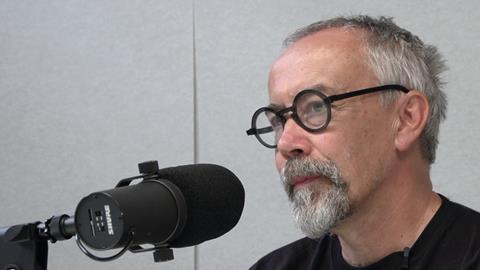
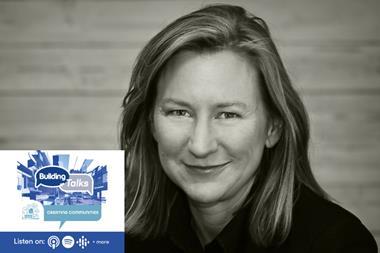
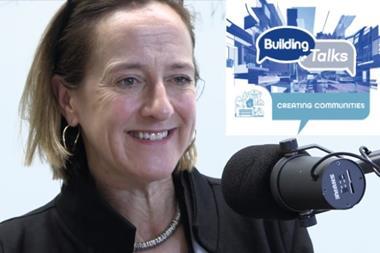
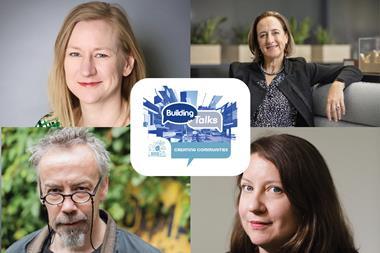







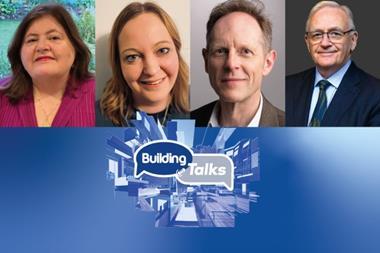






No comments yet